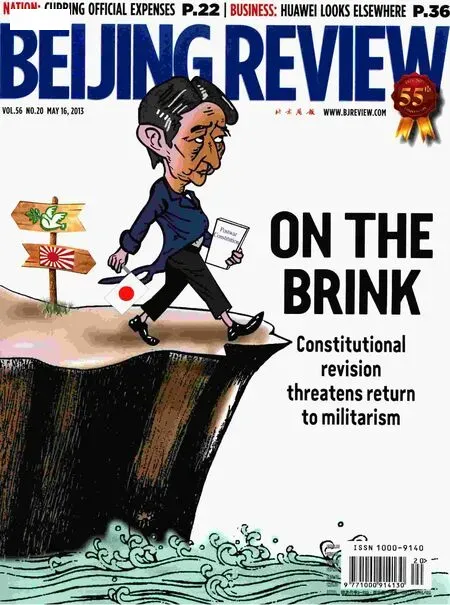The Wrong path
2013-12-19
More than six decades after its adoption, the Japanese Constitution is in danger of abandoning its pacifist principles. Prime Minister Shinzo Abe vowed to introduce substantive amendments with the ultimate aim of changing its war-renouncing clause, a long-established provision considered pivotal to Japan’s prosperity and regional peace.
When the Constitution was formulated during the Allied occupation following World War II, Japan agreed to relinquish the right to wage wars in order to reassure neighboring countries that suffered from the aggression of Japanese militarists. In addition, it believed that by giving up the need to maintain formal military forces, the war-torn country would be able to focus on economic development.
The Constitution, which has remained unchanged since entering into force in 1947, laid the groundwork for Japan’s postwar efforts to reinvigorate its economy and reshape its international image. The country has since risen from the ruins of war to become a leading economy and a major player in the global arena. Recent protests staged by Japanese people against constitutional revisions are evidence of the validity and popularity of the peaceful charter.
Abe’s attempt has not only met with opposition at home, but also been denounced worldwide. Countries that fought against Japanese militarism, including China, have all voiced concerns. In their view, the ongoing campaign to change the pacifist nature of the Constitution signals the rise of right-wing political forces and a possible return to militarism in Japan, a trend that may eventually destabilize the region.
In recent weeks, the Japanese prime minister has caused alarm by taking a series of controversial moves. He donated to the Yasukuni Shrine, where war criminals are honored along with Japanese war dead. He also cast doubt on the term “aggression” in an apparent bid to whitewash Japan’s wartime history. Moreover, he asserted there is no need to explain to neighboring countries his motivation in rewriting the Japanese Constitution.
Enough is enough. Abe’s eagerness to elevate Japan’s international status may be understandable, but he has no excuse to disrespect history in an appeal to right-wing sentiments at home. This approach is bound to back fire and disrupt his rational pursuits. Only by doing justice to history and learning its lessons, as Germany has done, can Japan gain the trust of its neighbors and the international community. ■
